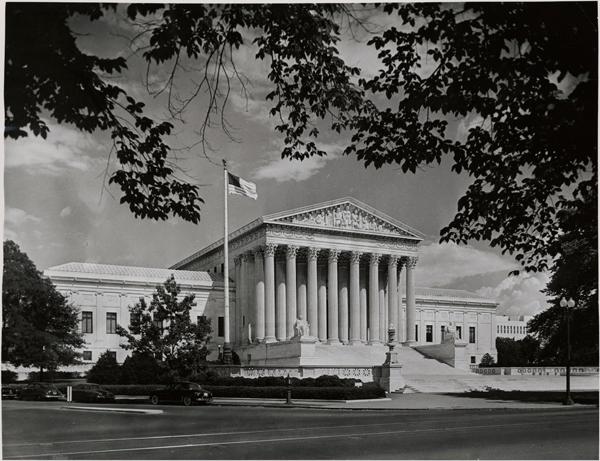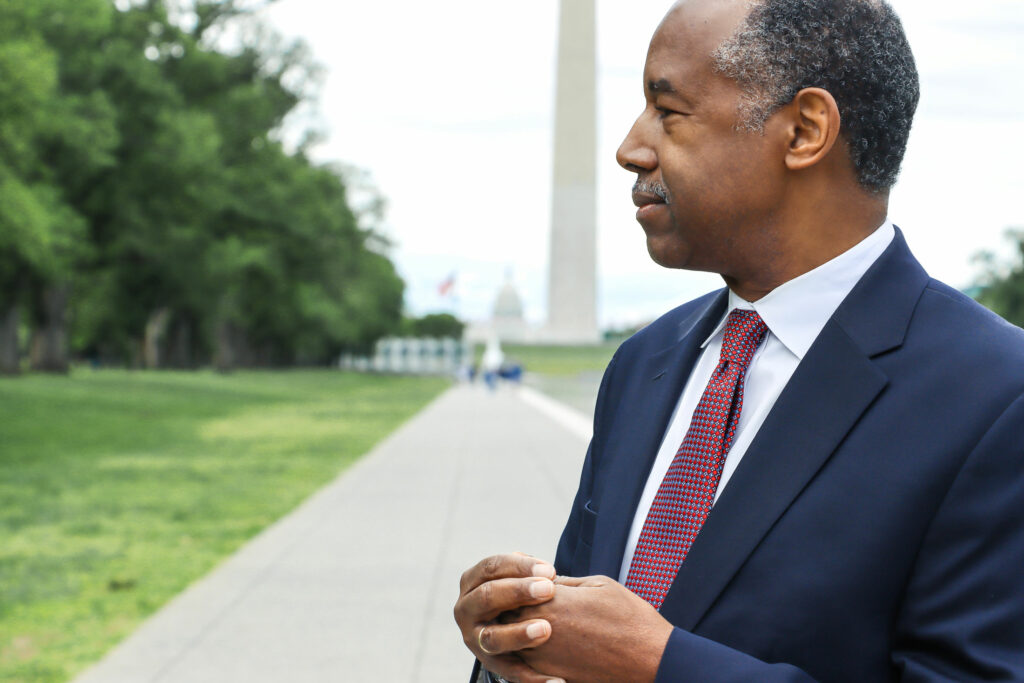
Supreme Court Watch
Argued April 25, 2024
Question Presented
Does a former president enjoy presidential immunity from criminal prosecution for conduct involving his official acts during his time in office, and if so, to what extent?Statement of Facts and Procedural History
In August 2023, former President Donald Trump was indicted by Special Counsel Jack Smith for his actions related to the January 6, 2021 Capitol riots. President Trump argued that he could not be prosecuted for his official acts as president without first being impeached by the House and convicted by the Senate.U.S. District Judge Tanya Chutkan set an initial trial date of March 4, 2024, but vacated that date pending resolution of the immunity question. Judge Chutkan initially denied President Trump’s immunity claim, and Special Counsel Smith asked the Supreme Court to bypass the decision by the D.C. Circuit Court and expedite the review of the question. The D.C. Circuit Court later upheld Judge Chutkan’s ruling at the appellate level, and President Trump requested a stay of that ruling pending resolution of his appeal. The Supreme Court ultimately granted an expedited timeline for the case, and oral arguments were conducted on April 25, 2024.
This case was heard regarding the constitutional question of presidential immunity. The merits of the claim—meaning the factual circumstances as applied to President Trump—are not at issue in this appeal.
Key Precedents
- Nixon v. Fitzgerald, 457 US 731 (1982)
- In which the Court held that the president has absolute civil immunity from liability for official acts that fall within the “outer perimeter” of his responsibilities.
- Clinton v. Jones, 520 US 681 (1997)
- In which the Court held that the president does not enjoy immunity for unofficial conduct before he assumes office, even if such liability burdens the president in the execution of his official duties. However, the Court also held that if the president shows that such liability will burden his ability to dispense with his obligations as president, the justice system can consider those restraints and structure the process in such a way as to minimize the burden.
Summary of Argument
Special Counsel Smith argued that no such immunity from criminal prosecution exists for former presidents. First, he argued that such an immunity claim would violate the separation of powers principle, as no presidential power entitles a president to claim immunity from federal crimes. Smith also argued that history shows that presidents are subject to prosecution for their official acts, evidenced by President Ford’s pardon of former President Nixon. Smith likewise argued that the civil immunity established by Nixon v. Fitzgerald does not extend to criminal immunity because society has a higher interest in applying criminal law and ensuring that nobody is above the law. Smith likewise claimed that the impeachment and conviction processes are inherently political rather than legal and, thus, should not be seen as a prerequisite for criminal prosecution but as a separate avenue for political accountability.Finally, Smith argued that even if a president has immunity from federal criminal prosecution for official acts, this prosecution should not be precluded because President Trump’s actions were private and should not be immunized.
In his reply brief, President Trump’s team argued that a former president must enjoy absolute immunity from criminal prosecution for official acts. They argued that without such protections, the action of a president would be unduly “chilled” because presidents would decline to take swift actions to perform their duties for fear of subsequent prosecution, they can be blackmailed with prosecution during their time in office, their operations and functions will be bogged down with legal issues, and their decision-making process can be distorted. All of this directly opposes The Federalist Papers’ discussion of an “energetic executive.” This argument is further bolstered by the fact that Smith admitted immunity applies to sitting presidents, not former ones—but underlying the reasoning that immunity does not dissipate once a president leaves office. President Trump’s counsel further argued that opening up former presidents to criminal prosecution risks jeopardizing the justice system’s integrity because every incoming Attorney General could investigate the opposition party’s former president.
President Trump’s counsel also argued that the Constitution requires the political impeachment and conviction process in the House and the Senate as a precursor to criminal prosecution, with the Framers realizing that some malfeasance may go unpunished. Furthermore, President Trump’s counsel argued that both Nixon v. Fitzgerald’s grant of civil immunity and the greater historical record support the idea of presidential immunity, drawing on primary sources from the Founding Era in their analysis.
Likely Holding
The Court’s conservative majority will likely build on the Nixon v. Fitzgerald holding to rule that the president enjoys immunity from criminal prosecution for acts that fall in the “outer perimeter” of his official duties, while declining to adopt President Trump’s theory that criminal prosecution can only come after impeachment and conviction. Without such immunity, the justices will likely argue that such immunity is required for a president to conduct his duties as chief executive. To open the president to criminal liability would impede the functions of the presidency and produce a “chilling effect,” which would discourage presidents from taking necessary actions if they knew they could later be prosecuted for doing so. The conservative justices might also point out that declining to extend such immunity to presidents could result in the prosecution of President Obama for his extra-judicial killing of U.S. citizen Anwar al-Awlaki or any other actions deemed illegal by a Republican Attorney General. This would create a back-and-forth of political prosecutions, which would intensify, rather than cool, the perception of a politicized justice system.Although the merits of President Trump’s actions are not under consideration, such a ruling will severely limit the federal cases brought against the former president. If such a ruling is issued, the prosecution will have to prove that President Trump’s investigations of voter fraud fall outside his official conduct as president, in addition to the elements of the individual crimes. This will likely wipe out most of the charges in these cases and stand as a big win for President Trump.
The Court’s liberal justices will likely hold that presidents do not enjoy immunity for criminal acts. They will likely agree with Smith’s argument that no president has believed that they have immunity from criminal acts thus far, and the novelty of this indictment counters the potential “chilling effect” discussed by President Trump’s counsel. They might also point to the fact that President Ford pardoned President Nixon after his resignation as further evidence of this fact. Furthermore, the liberal justices will likely argue that conferring such immunity places the president “above the law,” which was not the Founders’ intent, and say there is no textual basis for such a holding. They may further argue that while such a holding could open a “Pandora’s box” regarding presidential prosecutions, some safeguards remain, such as the fact that such an indictment can only be brought by the Attorney General, the grand jury requirement must still be satisfied, and the president still has the opportunity to prove his case in front a jury with a presumption of innocence. The liberal justices might also use this as evidence that this is the least political means of enforcing the law because it is done through the judicial system rather than Congress. While there is a possibility that Chief Justice John Roberts joins this view, it is unlikely to reflect the majority opinion and thus will not be legally binding.
